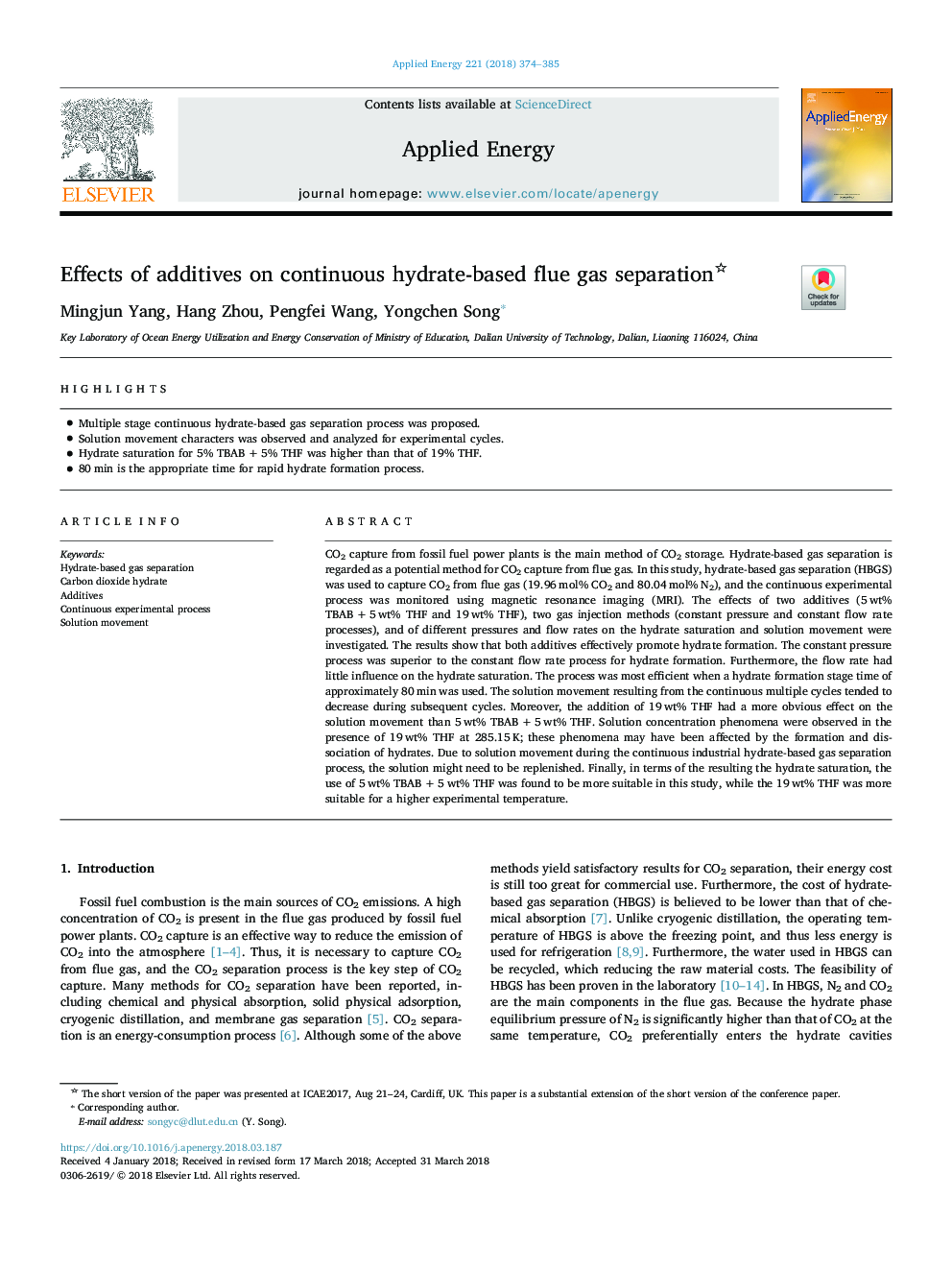| Article ID | Journal | Published Year | Pages | File Type |
|---|---|---|---|---|
| 6680195 | Applied Energy | 2018 | 12 Pages |
Abstract
CO2 capture from fossil fuel power plants is the main method of CO2 storage. Hydrate-based gas separation is regarded as a potential method for CO2 capture from flue gas. In this study, hydrate-based gas separation (HBGS) was used to capture CO2 from flue gas (19.96â¯mol% CO2 and 80.04â¯mol%â¯N2), and the continuous experimental process was monitored using magnetic resonance imaging (MRI). The effects of two additives (5â¯wt% TBABâ¯+â¯5â¯wt% THF and 19â¯wt% THF), two gas injection methods (constant pressure and constant flow rate processes), and of different pressures and flow rates on the hydrate saturation and solution movement were investigated. The results show that both additives effectively promote hydrate formation. The constant pressure process was superior to the constant flow rate process for hydrate formation. Furthermore, the flow rate had little influence on the hydrate saturation. The process was most efficient when a hydrate formation stage time of approximately 80â¯min was used. The solution movement resulting from the continuous multiple cycles tended to decrease during subsequent cycles. Moreover, the addition of 19â¯wt% THF had a more obvious effect on the solution movement than 5â¯wt% TBABâ¯+â¯5â¯wt% THF. Solution concentration phenomena were observed in the presence of 19â¯wt% THF at 285.15â¯K; these phenomena may have been affected by the formation and dissociation of hydrates. Due to solution movement during the continuous industrial hydrate-based gas separation process, the solution might need to be replenished. Finally, in terms of the resulting the hydrate saturation, the use of 5â¯wt% TBABâ¯+â¯5â¯wt% THF was found to be more suitable in this study, while the 19â¯wt% THF was more suitable for a higher experimental temperature.
Keywords
Related Topics
Physical Sciences and Engineering
Energy
Energy Engineering and Power Technology
Authors
Mingjun Yang, Hang Zhou, Pengfei Wang, Yongchen Song,
